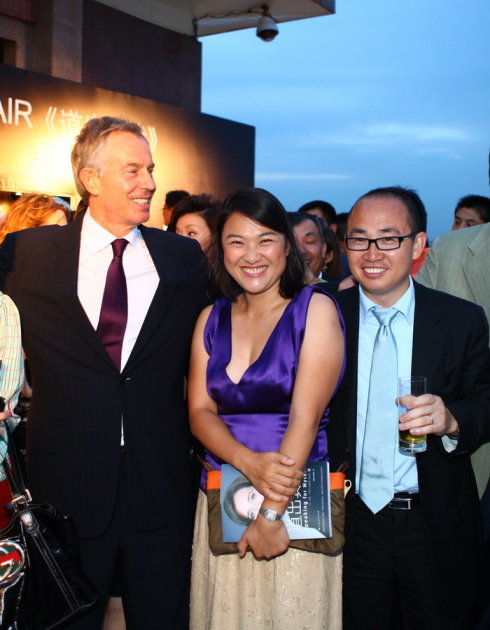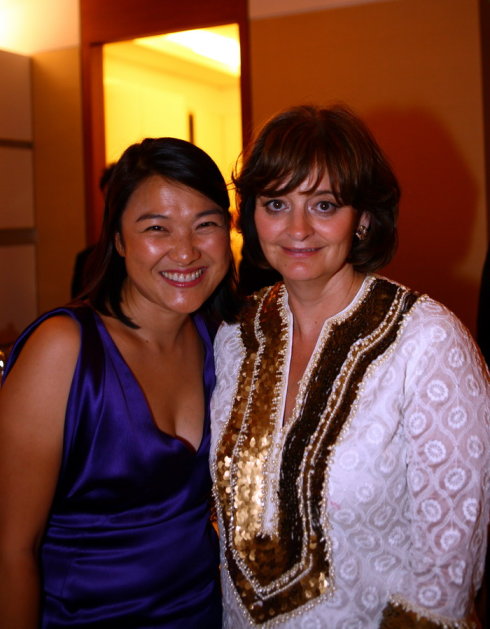
我们不应该因对现有抗议活动的关注而忽视了伊朗政府对宗教少数派的迫害
最近几周,伊朗涌现出了许多英雄人物。我们目睹了成千上万的民众冒着坐牢甚至是更糟糕的危险,走上街头支持民主。
妇女们始终走在这些和平抗议活动的最前列。可耻的是,这些和平抗议活动却遭遇了暴力。她们的权利和希望正受到最严重的威胁。
伊朗著名律师、诺贝尔和平奖得主希尔琳·艾芭迪(Shirin Ebadi)博士数十年来一直领导着这场争取自由和正义的斗争。她是全世界无数民众(包括我在内)心目中的英雄。她以不懈的努力为那些遭受迫害的人而四处奔走。
正是出于她一贯的勇敢以及对正义的信念,艾芭迪宣布将为去年被捕的伊朗巴哈伊社团的领导人进行辩护。当局对此故伎重施:艾芭迪的办公室被查抄和关闭,愤怒的暴民们聚集在她家周围,她和家人再次收到针对人身安全的恐吓。
这对艾芭迪博士来说早已是家常便饭。不仅仅是艾芭迪博士被伊朗当局视为眼中钉肉中刺,该国最大的宗教少数派——巴哈伊社团——也历来被作为严厉打压的目标。
一百多年来,根植于伊朗的世界宗教巴哈伊始终大力强调宗教团结、性别平等以及受教育权利等先进思想。也正因为此,巴哈伊信仰的追随者们受到了歧视与迫害:他们被禁止追随其信仰,否则就会被监禁甚至是处死。
他们的基本权利一直受到侵犯,对巴哈伊的肆意逮捕随处可见。巴哈伊的孩子们在学校里被校方欺压,信徒们被禁止进入大学学习或从事政府工作。他们由于其信仰而失去了养老金甚至是财产继承权。圣址和墓地纷纷被捣毁。
这场针对巴哈伊社团的运动在去年春天达到了一个新的高潮:七位领导人在凌晨突袭中被逮捕。在长达一年的时间里,既不提起诉讼,也不允许接触律师。最近,在押人士的家人终于得到了通知——本周六将开庭审理。
我们还不知道指控的罪名是什么。但伊朗的新闻报道认为,这些领导人将被控以从“以色列间谍”到“煽动颠覆伊斯兰共和国”等形形色色的罪名。这些指控在伊朗会受到严厉的判刑,包括死刑。更令人担心的是,报道说案件将由革命法庭来进行审理。正是这个法庭,最近对美国记者罗克萨娜·萨贝里(Roxana Saberi)的案件进行了不公开审理。经过了仅仅一天的诉讼程序,女记者就被判入狱八年。
只有在国际社会对如此拙劣的正义和过重的判刑进行强烈抗议之后,女记者才获得了重审机会,其刑期减至两年并缓期执行。
现在,在开庭之前,我们需要同样的国际压力,以保证七位领导人得到公平的审判和争取正义的机会。他们必须能够与律师进行充分接触,律师们也必须有充分的时间来准备辩护。诉讼过程必须对独立观察方公开。
并且,我们应该进一步施压,以保证伊朗承担起国际义务——不仅仅做到公平审判,而且实现宗教自由。伊朗宪法理应保护国内宗教少数派的权利,但现实却与此相差甚远,伊朗其他信仰的追随者们也可以证实这点。而拥有三十万之众的巴哈伊社团甚至被有意剥夺了这一虚设的保护。他们不仅仅没有从事其信仰活动的自由,而且被当作背叛伊斯兰的异教徒。
这让伊朗政府可以公开地虐待和迫害巴哈伊们——尽管该宗教与世界上所有主要宗教和先知们在基本教义上有共同的理念。作为信条之一,巴哈伊的追随者们将避免干涉政治,更谈不上对政府构成威胁了。
伊朗对巴哈伊的有系统的迫害早已不是什么秘密了,在总统艾哈迈迪-内贾德的治下更是变本加厉。英国、欧盟、美国国会、加拿大参议院、澳大利亚议会,以及众多主要的非政府组织都密切关注并严厉谴责这些迫害行为。今年早些时候,欧洲议会谴责了对艾芭迪博士的骚扰以及查封其办公室的举动,并敦促释放七位巴哈伊领导人,认为他们之所以被监禁“纯粹是由于他们的信仰”。
在伊朗国内,学生、学者、艺术家和诗人,以及政治与社会进步人士都曾为遭到围攻的巴哈伊社团而勇敢地大声疾呼。眼下,他们也感受到了来自政府方面的不满压力。
对支持民主的抗议活动及其遭受的血腥镇压保持关注是可以理解的。然而,我们必须确保这种关注不会使我们忽视了对这个国家最大的非穆斯林宗教少数派的威胁。历史上伊朗当局曾多次在类似的时刻将责任都归咎于巴哈伊人群。
两周前,伊朗外长马努切赫尔·穆塔基(Manouchehr Mottaki)指责英国政府支持“不服管束的巴哈伊教派”。写有“BBC =Baha'i Broadcasting Company”(英国广播公司等于巴哈伊广播公司)的标语牌出现在德黑兰的街道上。今天,伊朗的巴哈伊们正面临着非常不确定的、危险的未来。
我们必须敦促伊朗政府公平地审判巴哈伊社团的领导人,并允许独立观察员参加审判以确保其公平性。我们还必须呼吁伊朗政府承担起国际义务,对所有的公民加以保护,并允许他们不受歧视或恐吓地持有和从事宗教信仰活动。
希尔琳·艾芭迪博士是一位勇敢的女性和杰出的倡导者。但我们不应让她一个人来承担这个重任。
附英文版原文:
(The following article is written by Cherie Blair, the spouse of former Prime Minister Tony Blair, for The Times)
It is not just democracy that is illegal in Iran
The Times 9th July 2009
We must not allow our focus on the current protests to blind us to the state persecution of Iran’s religious minorities.
There have been many heroes and heroines in Iran in recent weeks. We have seen thousands take to the streets, risking arrest or even worse, in support of democracy.
Women have been in the forefront of these peaceful protests, which have, shamefully, been met with violence. It is their rights and hopes that are most under threat.
It is a fight for freedom and justice that Shirin Ebadi, the remarkable Iranian lawyer and Nobel Peace laureate, has been leading for decades. Dr Ebadi, a heroine of mine and thousands more around the world, has been tireless in her efforts to represent those facing persecution.
It was typical of her bravery, and her belief in the importance of justice, that she announced she would defend the leaders of Iran’s Baha’i community who were arrested last year before the latest protests. The reaction of the authorities was also typical. Her offices were raided and shut down, angry mobs appeared outside her home and she, and her family, received renewed and serious threats to their safety.
This will have come as little surprise to Dr Ebadi. Not only is she regarded as a thorn in the side of the Iranian authorities, but the Baha’i community, the country’s largest religious minority, has also been the target for severe persecution for much of its history.
For more than 100 years, the followers of the Baha’i faith, a world religion that has its roots in Iran, have faced discrimination and persecution for having progressive ideals that place great emphasis on the unity of religion, the equality of the sexes and the right to education. Bahai’is have been prevented from following their faith, on penalty of imprisonment and even execution.
Their fundamental rights continue to be violated. Arrests remain widespread and arbitrary. Baha’i children are bullied by school officials. Followers of the Baha’i faith can be denied access to higher education and banned from civil service posts. Pensions have been revoked and inheritances refused on grounds of Baha’i belief. Holy sites and graves have been destroyed.
The campaign against the Baha’i community reached a new intensity last spring when its seven-strong national leadership was arrested in dawn raids. More than a year after detention without charge or access to a lawyer, the prisoners’ families have finally been told a court date has been set for this Saturday.
We don’t yet know the charges. But Iranian news reports have suggested that the national committee stands accused of everything from “espionage for Israel” to “propaganda against the Islamic Republic”. Such charges carry very serious penalties in Iran, including the death penalty.
What is also very worrying are reports that the case will be heard by the same Revolutionary Court that recently tried, in secret, the US journalist Roxana Saberi. After proceedings lasting only one day, she was sentenced to eight years in jail.
It was only after the international outcry at this parody of justice and the severity of the sentence that she received another trial. This reduced her sentence to a two-year term that was suspended on appeal.
We need the same international pressure now, before the court case, to ensure the seven men and women receive a fair trial and a chance of justice. They must be given full access to their lawyers, who must have time to prepare their defence. The court proceedings must be open to independent observation.
Indeed, we must step up the pressure to ensure that Iran lives up to its international obligations not just on fair trials but on religious freedom. The Iranian constitution supposedly protects the rights of the country’s religious minorities. The reality, as many following other faiths in Iran can attest, is very different. And the 300,000 strong Baha’i community is deliberately excluded from even this nominal protection. Not only do they have no right to practice their faith, they are regarded as heretics who have abandoned Islam.
This gives the Iranian state an open invitation to mistreat and persecute followers of a religion which has a shared belief in the fundamental tenets of all the world’s leading religions and prophets. Far from posing a threat to the Government, its followers are expected to avoid political partisanship as an article of faith.
There is nothing secret about Iran’s systematic ill treatment of the Baha’i — a campaign that has worsened under President Ahmadinejad. The UK, European Union, US Congress, Canadian Senate, Australian Parliament and a range of leading non-governmental organisations have all monitored and condemned their mistreatment. The European Parliament condemned earlier this year the harassment of Dr Ebadi and the closure of her offices, and urged the release of the seven Baha’i leaders, who, it is believed, were imprisoned “solely on the basis of their belief’.
From within Iran, too, students and academics, artists and poets, political and social progressives have also bravely spoken up for the beleaguered Baha’i community. They, in turn, are now feeling the brunt of the state’s anger.
However, we must make sure that our understandable focus on the pro-democracy protests and their bloody suppression does not cause us to overlook the threat to the country’s largest non-Muslim religious minority. It is at times such as these that the Iranian authorities historically have heaped blame on the Baha’i population.
A fortnight ago, Iran’s Foreign Minister, Manouchehr Mottaki, accused the British Government of supporting the “wayward Baha’i sect”. Banners have been paraded through Tehran’s streets displaying the words “BBC =Baha’i Broadcasting Company”. Today Iran’s Baha’is face a very uncertain, dangerous future.
We must urge the Iranian Government to give the leaders of the Baha’i community a fair trial and allow independent observers access to ensure this happens. We must also call on Iran to live up to its international obligations to protect all its citizens and allow them to hold and practise their religious beliefs without discrimination or fear.
Shirin Ebadi is a courageous woman and a brilliant advocate. But we cannot let her carry this burden on her own.



0
推荐




 京公网安备 11010502034662号
京公网安备 11010502034662号 